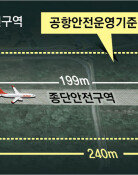Scratching Will Only Worsen Athletes Foot
Scratching Will Only Worsen Athletes Foot
Posted July. 04, 2005 03:12,

Water and germs will result in athletes foot. With the steamy and humid monsoon season, soaked feet are infested with germs. Some people dip their feet into foot massagers every night and soak them with vinegar, a folk remedy, making the whole house smell sour, but that only relieves the feet briefly. Athletes foot seems to improve a bit, but it will worsen again, so most people will just give up.
Nevertheless, before complaining that athletes foot will not go away no matter how you treat it, you should check if it was treated properly. If you havent gone to the hospital you dont know for sure if it is in fact athletes foot. What makes treating athletes foot difficult is rash self-diagnosis and clumsy self-treatment.
Itching accompanies 70 to 80 percent of athletes foot. However, if scratched improperly, it might lead to a second infection through wounds.
Get Diagnosed First, Whether It Is Athletes Foot or Eczema
Athletes foot is caused by long and thin parasitic fungi called dermatophytes, which digs into the gaps in the skin. The usual symptoms are blisters or a thick substance and itching. If it infects under the finger and toenails it will make the nails lose their shine, become uneven, and their ends crumble.
The problem is that such symptoms make athletes foot difficult to distinguish from other dermatological disorders such as eczema and psoriasis. Athletes foot will usually spread from between the toes to the top of the foot, while eczema will usually only appear in the same spots. It is common to be infected with both athletes foot and eczema. Therefore, before using medicine it is best to diagnose for the exact type of germs.
Even severe athletes foot can be cured by consistently using a prescribed ointment. However, rubbing eczema ointment in an area infected with athletes foot will cause the germs to incubate and become chronic. That is why if the first treatment is wrong, athletes foot will not be go away and keep recurring.
Vinegar and Other Folk Remedies Are Virtually Ineffective
External medicine will show effects if it is used consistently for an average of four weeks. If one stops using it, since symptoms are reliving, it will recur again. It should be applied to areas infected with athletes foot, and for two weeks after no symptoms are left.
The most commonly used folk remedy of using vinegar has more side effects than benefits. Vinegar is an industrial grade fungi remover. It will even melt the outer substance of the skin causing the toes to stick together, making surgery inevitable. Vinegar will also easily cause skin infections and burns. Athletes foot ointment is more effective in killing fungi than vinegar, so it is advised not to depend on folk remedies.
Toenail Polish is Unrelated to Toenail Athletes Foot
One does not get immunity after athletes foot is completely cured. In fact, athletes foot can recur in an environment with lots of fungi so one should be careful to prevent it.
First of all, one should dry oneself well after a bath. Using baby-powder is also good. Have more than one shoe ready, and wear them only once a day. You should avoid wearing shoes without socks just because it is hot. If athletes foot germs are left inside the shoes, no matter how well you are treated, it becomes worthless once you wear those shoes again.
Jelly sandals with soft bottoms, recently popular among women, are not recommended for people with athletes foot because foot ventilation might be bad since the bottom of the sandal sticks to the sole of the foot.
Some people are worried about pedicures but decorating toenails is irrelevant with toenail athletes foot. It is also fine to use foot moisturizers. Athletes foot will not spread more because the skin is moist nor spread less if the skin is dry. In fact, if the skin is too dry, the amount of thick substance on the foot increases, facilitating the intrusion of athletes foot fungi.
(Written with the assistance of Severance Hospital Dermatology Professor Lee Kwang-hoon and Seoul Asan Medical Center Dermatology Professor Chang Seong-eun.)
TK Sohn sohn@donga.com






